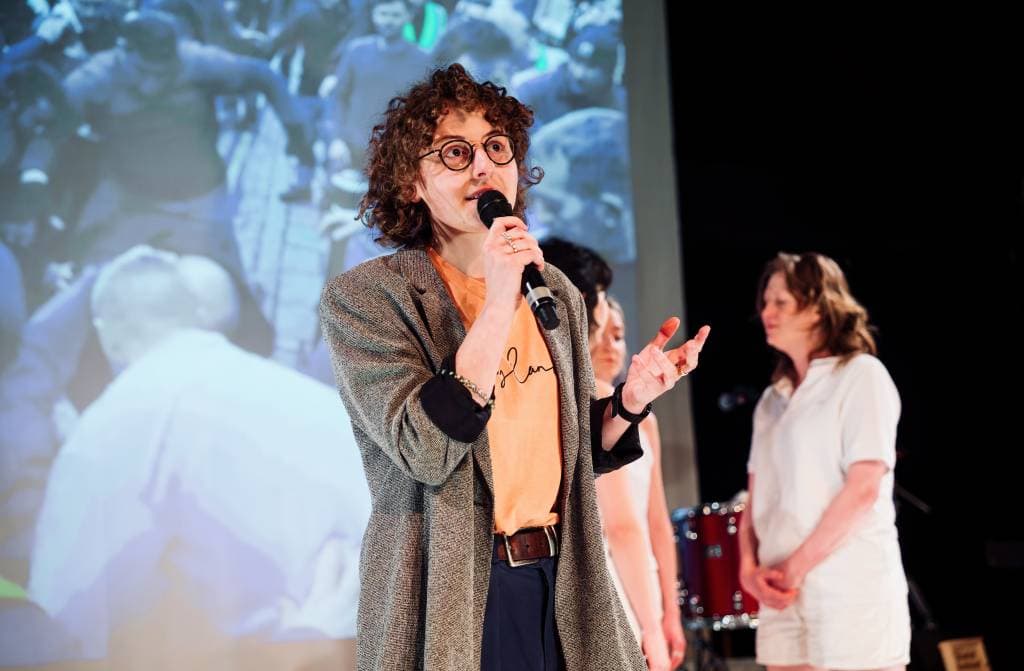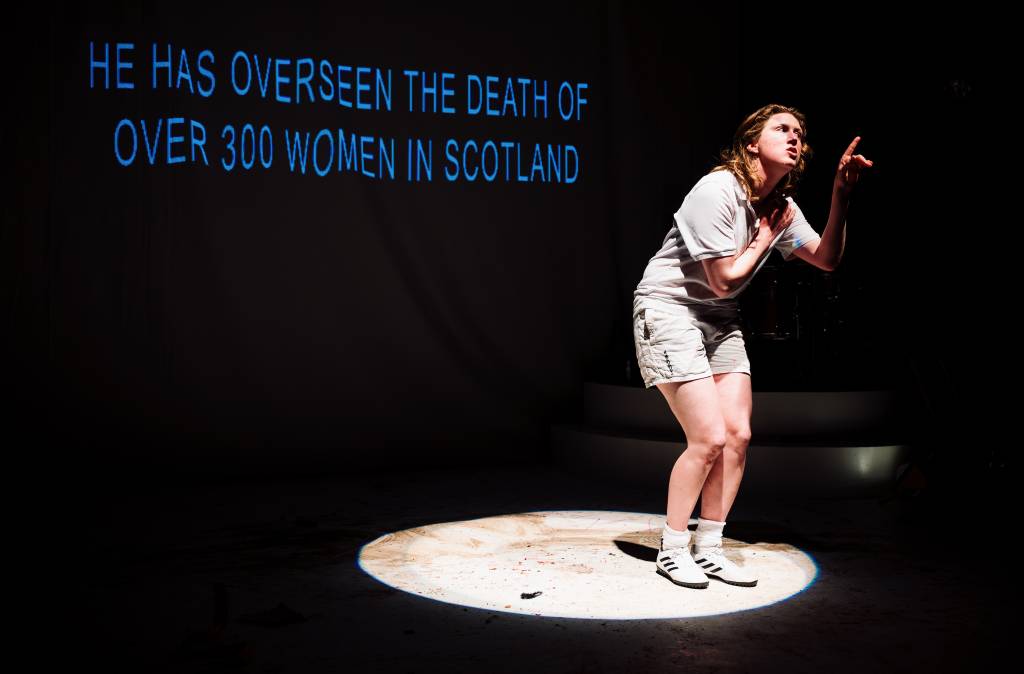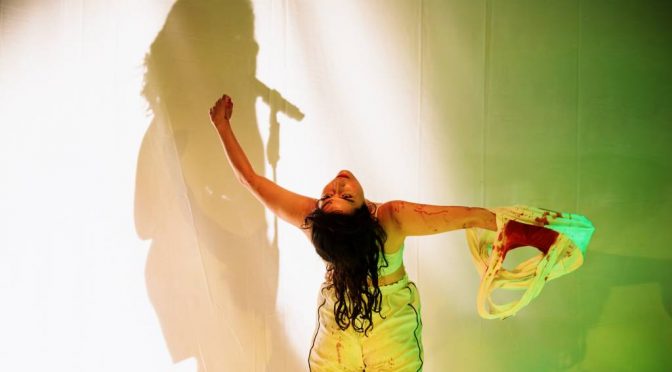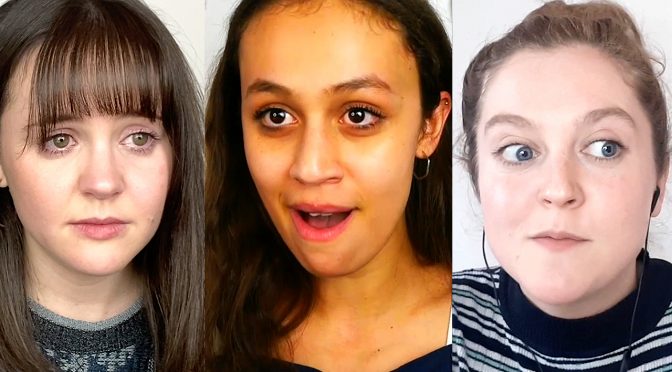Dirty Hare Productions presents a new and different kind of historical story. As with, say, Underdog: The Other Other Brontë, currently showing at the National Theatre, Emilia by Morgan Lloyd Malcolm, or even the musical Six, the aim is to focus on the neglected stories of women. It might be hard to see these shows as a genre – they are all so different – but they do share an honesty about the difficulty of such a project that is exciting and appealing.
Co-created by Lydia Higman, Julia Grogan and Rachel Lemon, the titular subject is a young girl from the Oxfordshire countryside who was “bewitched” and whose case was brought to trial in 1605. But the facts are scant and, predictably, focus on her father. So, what to do? Of course, theatre is great for bringing such stories to life. And the telling here is innovative and experimental… because it has to be.

Higman is an historian and appears as such, acting as a kind of narrator who amiably guides the audience. Then she takes to the guitar! As a composer, her music is a big part of the show, with a variety of genres cleverly utilised. Grogan also performs, joined by Hannah Jarrett-Scott and Norah Lopez Holden, who all have fantastic singing voices and tackle an impressive variety of roles.

Lopez Holden takes the part of Anne Gunter, showing a youngster who’s confused as well as frightened. Jarrett-Scott plays ‘the other’ Gunter – the father – with a suitably bluff aggression. It’s clear he takes advantage of his daughter, but how much he believes her to be a genuine victim must be an open question. Jarrett-Scott also has a star turn as a paranoid James I (a fantastic interpretation of the monarch). Alongside other characters, Grogan appears as one of the accused, Elizabeth Gregory, whose story is powerful. The acting is strong, but the show is all about its approach: a little crazy, always energetic and inspiringly experimental.
You never quite know what’s coming next. Or how anyone will speak: the script moves from early modern details to contemporary speech, with a lot of swearing. Or how anyone will move. Aline David’s choreography is punk-inspired one moment and then suitably otherworldly. As well as singing, there are plenty of props, many very simple, such as balloons, on an increasingly messy stage. And some strong puppetry is aided by Amy Daniels’ excellent lighting design.
At times the wild changes in mood or incongruities are disconcerting. That’s the point, of course. And some touches might annoy or even confuse (the variety of accents puzzled me). But there is a twist to the story that makes this fragmentary approach especially appropriate… we don’t know what happened to Anne. Although frustrating, it proves the show’s point: she is lost to history. A final poetic touch acts as a powerful tribute to Gunter that feels fully appropriate.
Until 25 April 2024
Photos by Alex Brenner


